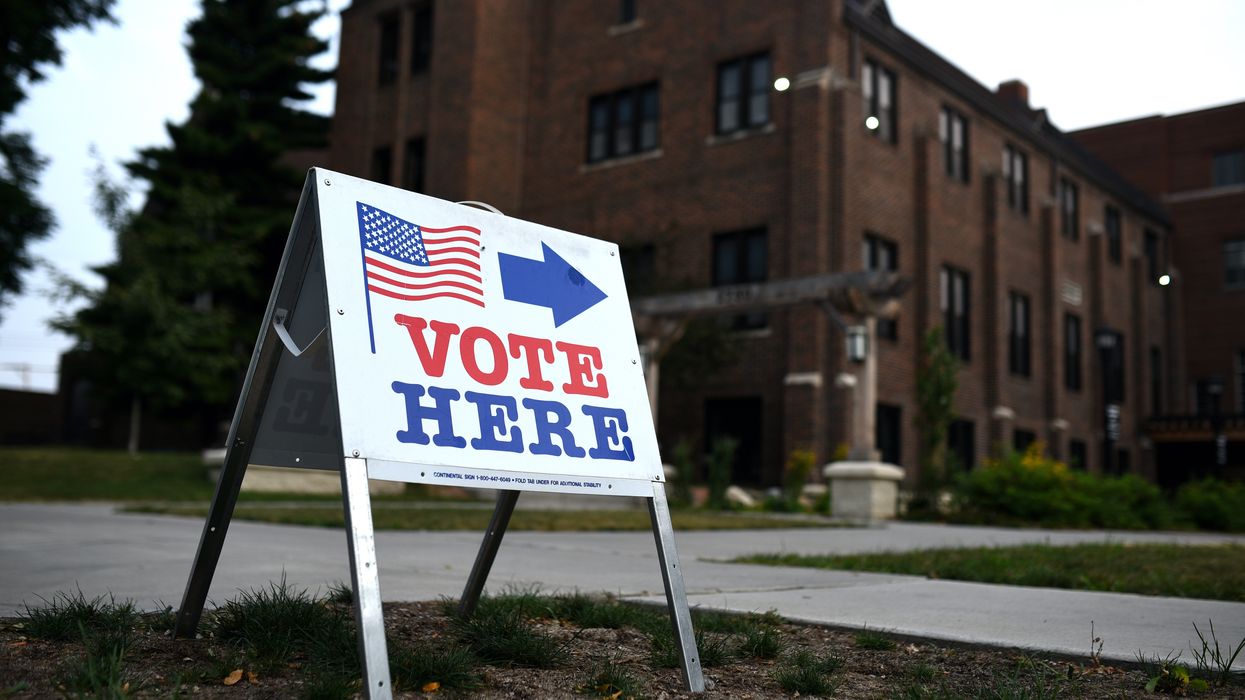Malbrough started the Georgia Youth Poll Worker Project this summer after graduating from Georgia State and becoming a fellow with the Andrew Goodman Foundation, which promotes political engagement by young people
In the age of early voting and advanced election technology, one of the main requirements for citizens on Election Day is obsolete. It is time for us as a country to change our election procedures and how we change the processes we use to administer it.
We have the ability to build a democracy that is more efficient and streamlined, and it is time for us to act on it.
Voters walking into a polling place on Election Day are usually presented with three options based on their address. If they are a resident of that local precinct, they can head to the voting booth right there. If they are not a resident of the precinct, they will be given information on their appropriate precinct and its voting location. If they don't want to head to a different polling place, they can stay where they are and cast a provisional ballot.
Poll workers are generally instructed to almost always permit people to cast a ballot, even if it's provisional, to ensure no voters are turned away but also to give local election administrators time to sort out disputes and certify the legitimacy of ballots after the election.
Before the advent of the internet and subsequent technologies, the reason for getting people to vote close to home was obvious — to make sure they were given the right ballots. One precinct may be in a different city council or even congressional district than the precinct across the road.
Poll workers used to have no way verify the identity of voters, and provide the proper ballot, to a voter from another precinct. But modern software, the internet and high-speed printers now mean that voters can be identified, and quickly provided with just the right ballot, at any polling place in their county if not their state.
The ability to cast a ballot wherever the voyager finds most convenient expands democracy and allows for easier election administration.
Every Election Day we see news footage of long lines snaking out of schools and libraries, and people waiting sometimes for hours after the polls are supposed to have closed in order to cast their ballots. Many of these delays are caused by technology failures and precincts that are at once overpopulated with voters and understaffed by poll workers. And many of these voters are stuck in line because they are effectively required to vote in their home precinct.
Technology can allow voters to find a firehouse or city hall that's not overcrowded — and head there to vote, even if it's in the next town down the road. This would reduce wait times as well as alleviate stress on poll workers who oftentimes have to work extended hours every election.
In-person absentee voting, which is often known as early voting, is an option 40 states use to expand voter access. Some states offer this option for several weeks, others only for a few days, but the benefits are shorter waiting times for voters and easier administration of the election by the state. In most of them, polling centers are open to all residents of a county, so voting close to home is not required.
As a country we are working toward a culture of voting in advance of Election Day, in effect creating something closer to an Election Month. The non-official holidays that promote exercising of the franchise, such as National Voter Registration Day and Vote Early Day, are helping. What would help more would be a further blurring of the distinctions between early voting, provisional voting and Election Day voting.
The technology is here to make that happen. We have the tools. Integrated technologies could be a cost effective way to modernize and secure our democracy.



















